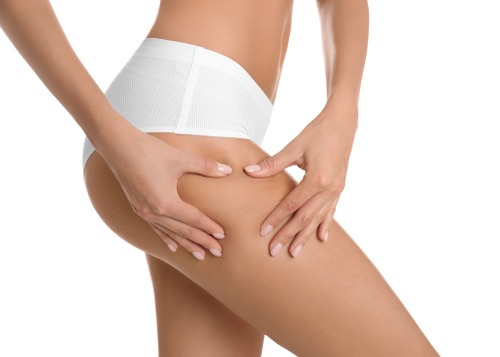How Bad Does Lipo Hurt?
Posted on January 5, 2022Lipo
 Liposuction is not a particularly painful procedure. You would most likely be placed under tumescent anesthesia or general anesthesia following the procedure. You may experience a mild form of discomfort upon waking up from the surgery. This pain generally subsides within 2 to 3 days.
Liposuction is not a particularly painful procedure. You would most likely be placed under tumescent anesthesia or general anesthesia following the procedure. You may experience a mild form of discomfort upon waking up from the surgery. This pain generally subsides within 2 to 3 days.
Your treatment provider will prescribe pain medications to make you more comfortable. plastic surgeon Dr. David Kim provides liposuction body contouring surgery to patients in Beverly Hills, Los Angeles, CA, and surrounding communities.
Soreness and Tenderness
The degree of swelling and soreness following liposuction plastic surgery depends on the type of aftercare procedures employed. Soreness is most intense in the 2 to 4 days following the liposuction before decreasing steadily. Typically, the soreness and tenderness are bothersome for up to 4 weeks. It gradually subsides in the next 4 to 8 weeks.
Quality of Pain Following Tumescent Liposuction
Local anesthesia persists for 12 to 24 hours following tumescent liposuction. The only discomfort described in this type of liposuction is soreness and tenderness. The quality of pain following the procedure is that of muscle soreness or sunburn. This is similar to having worked-out too vigorously. This pain doesn’t require anything more than Tylenol or acetaminophen.
Intensity of Pain Following Liposuction
Patients have less discomfort following liposuction cosmetic surgery when performed by skilled surgeons using local anesthesia. Patients generally don’t require anything stronger than Tylenol or acetaminophen following liposuction by local anesthesia.
Post-operative pain and discomfort may sometimes be more intense in case of general anesthesia. This is generally true when the general anesthesia is not used along with sufficient local anesthetic in the form of lidocaine in the tumescent solution. The pain becomes more acute and requires narcotic analgesics.
Post-op Pain Management with Compression Garments
Post-liposuction pain can be decreased with elastic compression garments if they are employed along with open-drainage technique. This technique refers to not closing the small incisions made by the surgeon. When the tiny incisions are not closed, they maximize drainage of the inflammation-causing blood-tinged anesthetic solution.
Elastic garments when worn immediately after the surgery encourage in maximizing the amount of blood-tinged anesthetic solution drainage. This in turn helps in reducing pain. Many patients continue wearing the compression garment for restricting jiggling and movements of the treated areas. This helps in providing a sense of security by reducing discomfort.
Minimizing Soreness and Swelling Following Liposuction
Most soreness and swelling following liposuction is because of residual blood tinged anesthetic solution which remains trapped under the skin. Inflammation is caused by red blood cells that have leaked out of blood vessels or fragments of fatty tissues which escape suction and remain under the skin. Inflammation causes pain and swelling.
You can minimize soreness and swelling following liposuction by encouraging the complete drainage of the blood-tinged anesthetic solution. Complete drainage is maximized by not wearing elastic compression garment and leaving the incision site open. The surgeon should not use stitches to close the site of incision.
Cosmetic surgeon Dr. David Kim receives patients from Beverly Hills, Los Angeles, CA, and nearby areas for liposuction fat reduction and body contouring surgery.
Schedule a Consultation with Beverly Hills California Plastic Surgeon Dr. Kim
For more information on the surgical and non-surgical procedures and treatments by Cosmetic Plastic Surgeons Dr. David Kim and Dr. Eugene Kim. Click here to contact us today.
Also visit drdavidkim.com
Serving Beverly Hills, Los Angeles, West Hollywood, Orange County, Southern California and surrounding areas.
